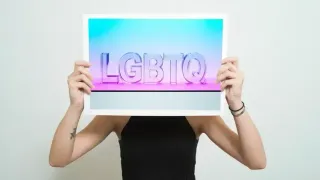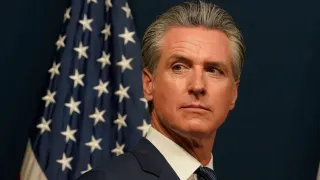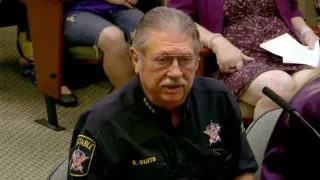
6 hours ago
Steve Smotherman: Transforming Cracker Barrel’s Culture from Exclusion to Queer Inclusion
READ TIME: 3 MIN.
The story of Cracker Barrel’s transformation from an exclusionary workplace to one that actively embraces LGBTQ+ inclusion is deeply intertwined with the leadership of Steve Smotherman, a queer business executive and diversity advocate. Smotherman, who joined Cracker Barrel in 2005, navigated and helped steer the restaurant chain through a period of significant cultural change—one that is newly relevant as corporations grapple with the future of DEI programs in today’s contentious social climate .
Cracker Barrel’s history with the LGBTQ+ community was once marked by exclusion. In 1991, the company imposed a policy mandating “normal heterosexual values,” resulting in the termination of at least 11 employees based on their sexual orientation and sparking nationwide boycotts and protests . This reputation made Smotherman initially hesitant to join the company, as he later reflected on the challenges of entering a workplace with a problematic legacy for queer employees.
However, over his fifteen-year tenure, Smotherman became a driving force for change. Drawing on his background in adult learning and corporate training, he facilitated difficult conversations and developed content centered on diversity and inclusion. Smotherman spearheaded the creation of an LGBTQ employee resource group—the first of its kind at Cracker Barrel—giving queer employees a platform for advocacy and visibility .
Recognizing the need for structural change, Smotherman led efforts to partner with the Human Rights Campaign , the largest LGBTQ+ civil rights organization in the United States. Through this partnership, Cracker Barrel began to overhaul its company culture, policies, and training programs to create a safer and more inclusive environment for LGBTQ+ employees. Smotherman’s expertise and commitment resulted in his appointment to the HRC’s Business Advisory Council, where he contributed to broader industry standards for workplace inclusion and equity .
The impact of these initiatives was substantial: Cracker Barrel shifted from a company known for discriminatory practices to one recognized for its efforts to support LGBTQ+ employees. This transformation was not merely symbolic; it involved concrete changes in hiring, training, and employee support systems, setting an example for other organizations navigating similar journeys .
Smotherman’s work at Cracker Barrel resonates deeply at a time when DEI initiatives are under renewed scrutiny. Recent news highlights several corporations rolling back or dropping their support for DEI and LGBTQ+ programs, a move that GLAAD’s President & CEO Sarah Kate Ellis has called “embarrassing, un-American, and a failing business strategy” . Ellis emphasizes that business leaders must recognize their responsibility to an increasingly diverse workforce and consumer base, noting that most Americans favor companies that stand by LGBTQ+ inclusion efforts .
Smotherman’s leadership and visibility as a queer executive offer a counternarrative to the current backlash, showing how sustained advocacy and partnership with organizations like HRC can foster long-lasting change. His story illustrates that LGBTQ+ inclusion is not merely a “trend” but an essential part of corporate responsibility and ethical business practice—a message that is particularly vital for queer audiences observing today’s shifting landscape.
For many LGBTQ+ professionals and aspiring leaders, Smotherman’s journey underscores the importance of representation and visibility at the highest levels of business. By occupying leadership roles and advocating for systemic change, queer business leaders like Smotherman create pathways for others and challenge organizations to confront histories of exclusion. This is echoed in broader industry conversations, where LGBTQ+ event leaders and advocates stress the need to remain visible and proactive in supporting marginalized communities, especially when protections and resources are threatened .
Smotherman’s experience also highlights the value of employee resource groups as vehicles for change, giving voice to queer staff and ensuring their concerns are addressed at the corporate level. Such initiatives are increasingly recognized as best practices for fostering inclusive workplaces and supporting the personal and professional development of LGBTQ+ employees.
While Smotherman left Cracker Barrel in 2020, his legacy continues to influence the company and the broader business community . As debates over DEI rage on, the story of Cracker Barrel’s transformation serves as an instructive case study for companies confronting their own histories and seeking to build more inclusive futures.
For queer audiences, Smotherman’s achievements provide both inspiration and a reminder that change is possible—even in organizations with deeply entrenched exclusionary practices. His work demonstrates that LGBTQ+ leaders can—and do—make a powerful difference when they are empowered to lead, advocate, and partner for equity.






